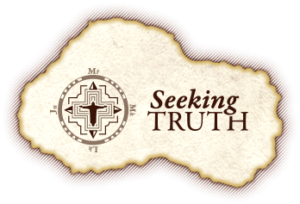Podcast: Play in new window | Download (Duration: 57:50 — 39.7MB) | Embed
Subscribe: Apple Podcasts | Spotify | Amazon Music | Android | Pandora | iHeartRadio | JioSaavn | Podchaser | Gaana | Podcast Index | Email | TuneIn | Deezer | Anghami | RSS | More
An Advent Special – The Gospel of Luke – Chapter 1

The Virgin Mary is at the center of the beginning of our lecture covering Luke 1. The church fathers, including Ambrose and Augustine, realized that Mary’s perpetual virginity was anticipated by the Old Testament prophets. In Ezekiel 44, we read about the locked eastern gate of the sanctuary, which could only be entered by the messianic prince. Mary is ever inviolate, even while giving birth to Jesus: like light passing through glass, Jesus was born of Mary, whose virginal integrity remained preserved. Mary serves as the gateway to heaven, through which passes Jesus.
Luke 1 begins with an address to “Most excellent Theophilus,” who may be a specific high ranking official. “Theophilus” also means beloved of God, and Luke might instead be writing an open letter the entire Christian community. Luke provides the historical detail that Herod is king at the time Jesus’ birth. Herod the Great, an Edomite, was not the legitimate ruler of Israel. Rather, he was a puppet king propped up by the occupying Romans. The Edomites were the descendants of Esau and the Israelites were the descendants of Jacob. The two nations were forever in conflict ever since Esau sold his birthright to Jacob for a bowl of stew and Jacob deceived his blind father, obtaining the blessing that was rightfully due to Esau.
Many Old Testament prophecies are fulfilled in Luke 1, most notably the prophecy of Isaiah 7:14, which announces that a virgin shall conceive and give birth to a son called Immanuel. In addition, the mission of John the Baptist is foretold by the final prophet of the Old Testament, Malachi: “Behold, I will send you Eli′jah the prophet before the great and terrible day of the Lord comes. And he will turn the hearts of fathers to their children and the hearts of children to their fathers (Mal 4: 5-6).” Jesus himself describes John as “Elijah who is to come” (Mt 11: 14).
Luke 1 begins with the story of Zechariah and Elizabeth, the parents of John. Elizabeth and Zechariah were righteous before the Lord, yet they had not yet been blessed with children. Zechariah, a priest, was chosen by lot to pray within the Holy of Holies. Ironically, during the time of Zechariah, the Ark of the Covenant is no longer present in the Holy of Holies, having been hidden by Jeremiah the prophet, never again to be found (2 Maccabees 2). The angel Gabriel appears to Zechariah and echoes the words of Malachi, predicting the birth of John the Baptist, the Elijah yet to come. Zechariah doubts Gabriel and is struck mute. The last time Gabriel appeared was during the Babylonian exile when he told Daniel that it would be “70 weeks of years” of atonement for Israel. Indeed, 490 years later, Jesus the Messiah ushers in the end of atonement for Israel.
Luke 1 continues with the Annunciation to Mary. The angel Gabriel again appears, this time to Mary, greeting her: “Hail, full of grace!” The Greek word for this phrase is “kecharitomene” which means that Mary was full of grace, is full of grace and will be full of grace, which is a reference to her life-long sinless nature. The angel tells Mary, “Be not afraid.” These words of encouragement were given to Joshua, Gideon and Moses as they prepared for battle, indicating that while Gabriel was comforting Mary, he was also preparing her for the battle yet to come.
Finally, the lecture concludes with a glimpse into the early life of Mary, drawing from the extra-biblical source “The Protoevangelium of James.” While not part of the canon of inspired scripture, this text tells us of the early years of Mary. From this text, we learn the names of Mary’s parents, Joachim and Anna. According to “The Protoevangelium of James,” Joachim and Anna were childless and advanced in years when an angel appears in a vision, announcing that they will have a child. In a singular act of grace, Mary is conceived without the stain of original sin.
Sharon Doran serves as the teaching director of “Seeking Truth.” An experienced Bible Study teacher, Sharon has a passion for scripture that will motivate and challenge you to immerse yourself in God’s Word and apply His message to your everyday life.
For more in this series visit the Seeking Truth with Sharon Doran Discerning Hearts page
 “Seeking Truth” is an in-depth Catholic Bible Study, commissioned by the Archdiocese of Omaha in response to John Paul II’s call to the New Evangelization as well as Pope Benedict XVI’s exhortation for all Catholics to study scripture. To learn more go to www.seekingtruth.net
“Seeking Truth” is an in-depth Catholic Bible Study, commissioned by the Archdiocese of Omaha in response to John Paul II’s call to the New Evangelization as well as Pope Benedict XVI’s exhortation for all Catholics to study scripture. To learn more go to www.seekingtruth.net

